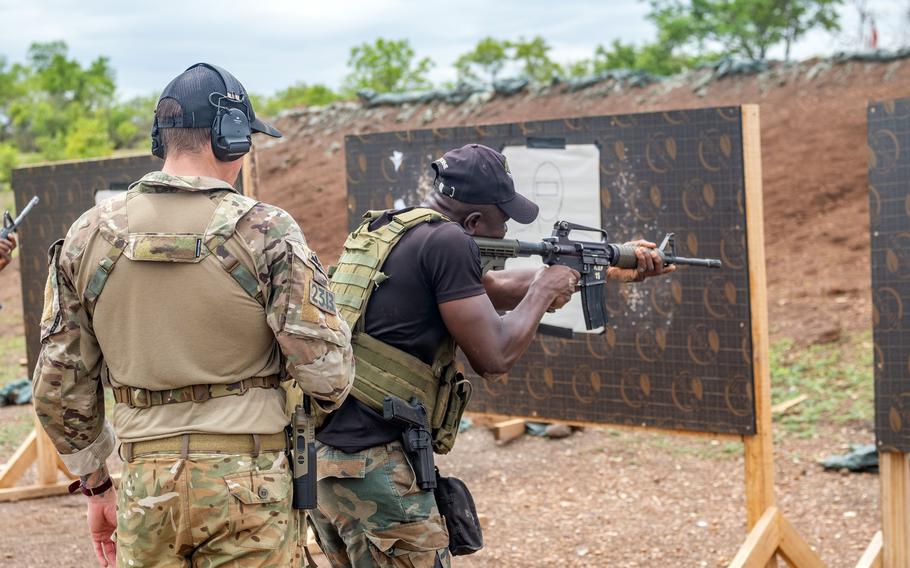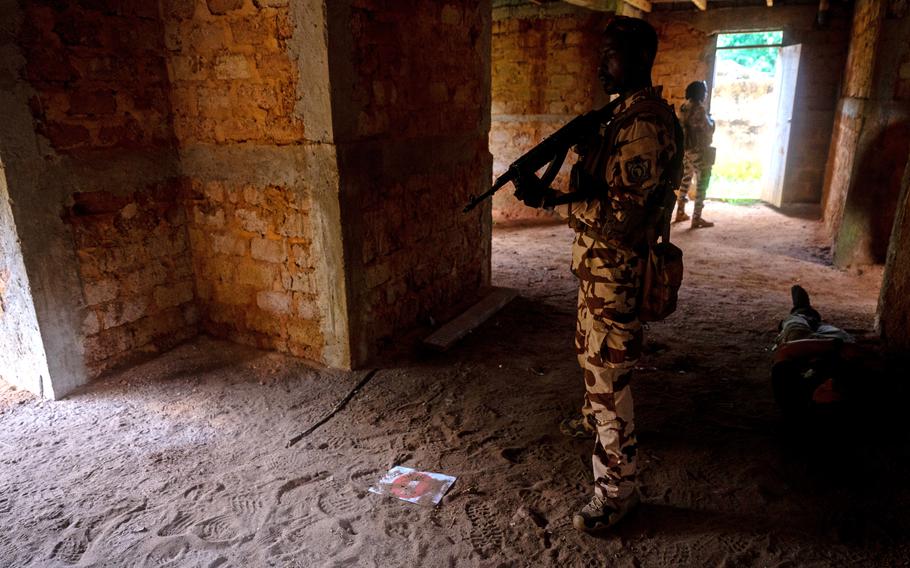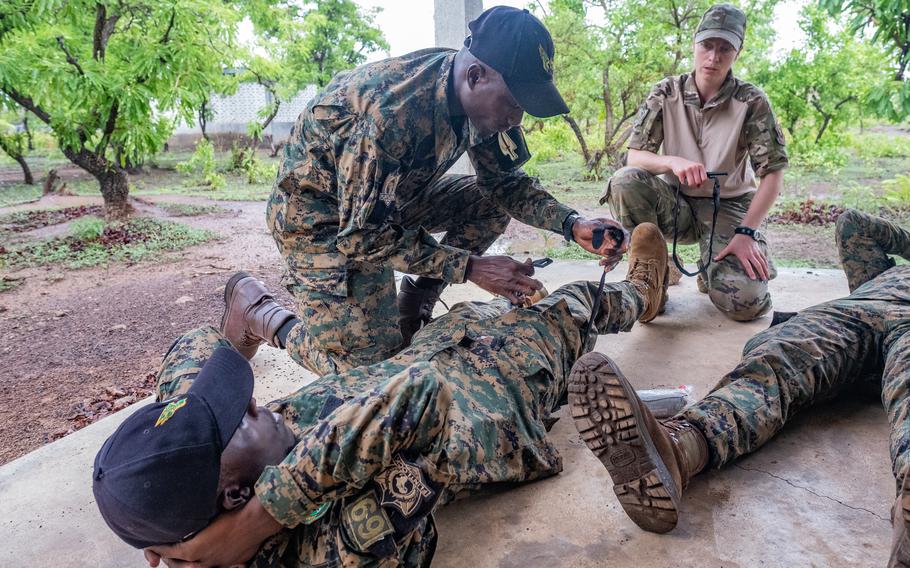
Members of Ghana's armed forces prepare for a range training exercise May 13, 2024, during Flintlock 24 in Daboya, Ghana. Nearly 30 countries, including the U.S., are participating this year in the annual exercise. (Kevin Brown/U.S. Army National Guard)
U.S. Special Operations Command Africa’s largest annual exercise is underway, as Washington grapples with rising extremist violence in West Africa, tension with former counterterrorism partner Niger and a growing Russian presence on the continent.
Flintlock 24, which began Monday and runs through May 24, features nearly 30 countries and approximately 1,300 personnel. For the second year in a row, Ghana and Ivory Coast are hosting.
The training is meant to foster collaboration and strengthen African nations’ ability to battle violent extremist organizations.
“The partnerships that we forge here will allow us to address the threats on the continent,” U.S. Navy Rear Adm. Ronald Foy, who heads U.S. special operations in Africa, said in a statement Tuesday. “It’s a collective group effort.”
Cooperation in Africa is more important than ever to the U.S. because of recent democratic backsliding and rising extremism.
The number of fatalities linked to militant Islamic violence increased by 20% in 2023, hitting record levels, according to a report from the Africa Center for Strategic Studies, a Defense Department research group. More than 80% of those deaths were in the west African Sahel region and Somalia.

Members of Chadian special operations forces pull security at a simulated rural village while training with the 20th Special Forces Group (Airborne) during Flintlock 24 near Jacqueville, Ivory Coast, on May 13, 2024. (Kyle Brasier/U.S. Air Force)
In the past, Niger has been a crucial partner for the United States. The country participated in Flintlock last year and hosted the exercise in 2014.
But after a military coup in July 2023, the U.S. froze security support, as required by law, and paused counterterrorism activities, including intelligence gathering via drone flights.
The U.S. agreed in April to remove troops, putting the future of the $110 million U.S. drone base in Agadez in doubt. And this month, Niger’s ruling group revoked an accord in place since 2012 that allowed U.S. military personnel in the country.
Niger expelled French troops in December. Mali and Burkina Faso have also ended their military cooperation with France.
The rifts have created opportunities for Russia, which has dispatched troops to train Nigerien forces. Russian troops are currently occupying one end of the same air base occupied by U.S. troops.
The juntas in Mali and Burkina Faso are also getting military support from Russia, and Mali is also working with the Kremlin-linked Wagner Group, according to the State Department.

U.S. Air Force Maj. Chantul Fischer, a nurse assigned to the 193rd Special Operations Medical Group, oversees members of Ghana's armed forces May 13, 2024, as they show how to apply a tourniquet during exercise Flintlock 24 in Daboya, Ghana. (Kevin Brown/U.S. Army National Guard)
Pentagon spokesman Maj. Gen. Pat Ryder was asked Tuesday about the deteriorating relationship with Niger and whether the previous training the country’s military received from the U.S. poses a risk.
“As you know, we’re in a different position now,” Ryder said. “And we’re going to continue to consult with the Nigeriens in terms of the orderly withdrawal of U.S. forces. We’re going to continue to stay engaged with the partners in the region when it comes to terrorism and countering the terrorist threat.”
The U.S. also temporarily withdrew forces in Chad early this month, but Ryder did not rule out future cooperation.
“We’re going to continue to have conversations about what types of support they require and where we can work together,” Ryder said. “While it’s very understandable to focus on these two countries, and they’re important countries in the region, it’s also important to look at our efforts more broadly when it comes to counterterrorism, and to working with countries throughout Africa on regional security and stability issues.”